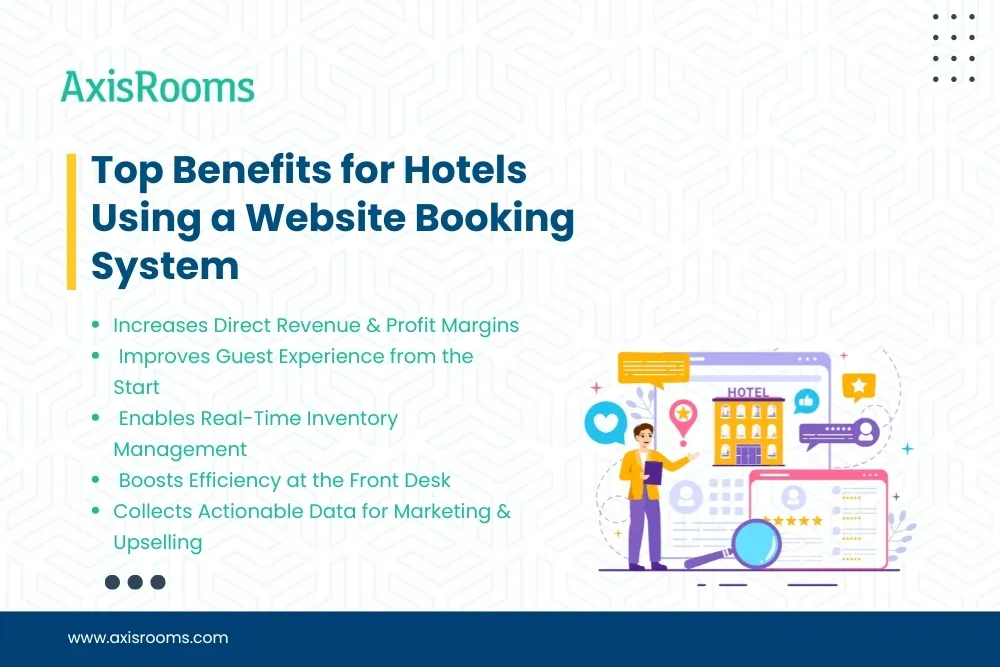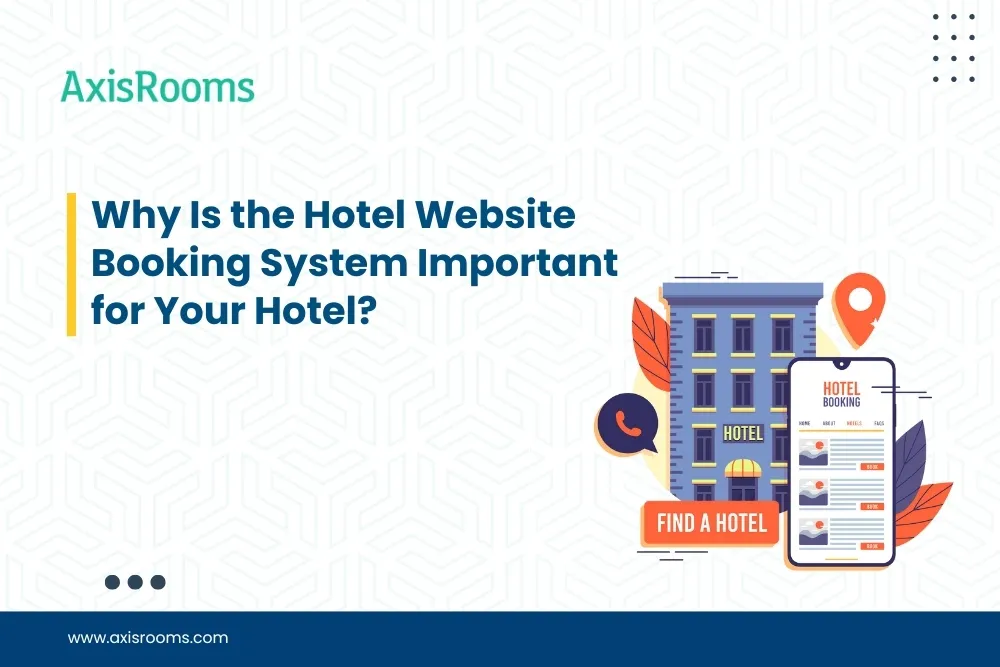If you're running a hotel today—whether it's a boutique stay, a chain property, or a beachside resort—your website isn't just for display. It's your most valuable sales desk.
With travelers increasingly booking online and expecting immediate confirmation, having a hotel website booking system is no longer optional. It’s how you win bookings without depending entirely on OTAs and call-based reservations.
In this blog, we’ll explore what a booking engine is, how it works, and why hoteliers like you need one now more than ever.
What is a Hotel Website Booking System?
A hotel website booking system is a tool that allows guests to check availability and book rooms directly from your hotel’s website—without relying on third-party agents.
Once a booking is made, it automatically updates your inventory, confirms the reservation, and syncs with your property management system (PMS) using robust PMS integrations, avoiding manual intervention and errors.
For hoteliers, it’s the difference between chasing bookings and receiving them 24x7 while you focus on service delivery.
How Does It Work?
Here’s how a typical hotel website booking engine functions behind the scenes:
- Guest visits your website and searches for room availability.
- The booking engine displays live availability, rates, and room options.
- The guest books a room and makes payment (if integrated with a payment gateway).
- The reservation is auto-updated in your PMS, and a confirmation email is sent to the guest.
- Your front desk or reservation team is notified—no calls, no delays.
This real-time connectivity ensures you never overbook, undercharge, or miss a booking.
Why Hoteliers Need a Website Booking Engine
Let’s break this down in a way every hotelier can relate to.
In today's competitive landscape, the balance is heavily tilted toward OTAs, which currently hold a 55% share of the travel booking market compared to 45% for direct suppliers. However, industry projections show that 40% of hotel bookings are anticipated to come direct by 2028, highlighting the growing importance of investing in your own booking systems now.
Top Benefits for Hotels Using a Website Booking System

1. Increases Direct Revenue & Profit Margins
A direct booking engine helps:
- Reduce third-party dependency
- Increase profit per reservation
- Offer value-added packages directly on your site
It becomes an essential part of your hotel revenue strategy, helping you shift focus from quantity to profitability.
2. Improves Guest Experience from the Start
Today’s traveler wants speed and flexibility. With a responsive booking engine:
- Guests can book in their preferred language and currency
- They receive instant confirmation and payment options
- No call or email follow-ups required
You start the guest experience long before they check in—building trust and confidence from the first click.
3. Enables Real-Time Inventory Management
Availability, rates, and policies are instantly updated across your booking engine and PMS. This:
- Reduces overbooking risks
- Minimizes manual workload for your team
- Keeps parity with OTA listings (if connected via channel manager)
4. Boosts Efficiency at the Front Desk
Your staff no longer has to check emails or manually enter booking details. With a centralized system:
- Bookings flow directly into your hotel software
- Payments and room allocation are visible at a glance
- Guests are served faster at check-in
It’s time saved, accuracy improved, and guest service enhanced.
5. Collects Actionable Data for Marketing & Upselling
Your website booking engine isn’t just a tool—it’s a source of business intelligence. It helps you:
- Track booking trends (seasonality, lead time, source market)
- Understand guest preferences (room types, add-ons)
- Build targeted offers (email campaigns, loyalty discounts)
With guest data in hand, you can retarget and upsell smarter.
Why It’s Crucial for Mid-Sized and Independent Hotels
For independent hotels that don’t have deep pockets to compete with global chains, a booking engine is a cost-effective growth lever. It levels the playing field in four key ways:
Why AxisRooms Booking Engine Is Built for Hoteliers Like You
At AxisRooms, we’ve built our booking engine with hoteliers in mind—those who need real results, not just software.
Here's how we help:
- ✅ Customizable widgets for your hotel website
- ✅ Mobile-optimized guest interface
- ✅ Seamless integration with PMS & channel managers
- ✅ Secure payment gateways with multi-currency support
- ✅ Promo code & discount campaign tools
- ✅ Analytics dashboard to track performance
Whether you're running a city hotel, a leisure resort, or a heritage property, our system helps you convert website visitors into confirmed bookings—without lifting a finger.
Artificial intelligence is transforming the hospitality industry, and forward-thinking hotels are embracing it. AI can now help automate processes, optimize pricing, and enhance personalization. The technology can analyze vast amounts of data to predict booking intent, cancellation likelihood, and even identify the best upsell opportunities for each guest. With 48% of travelers now trusting AI to plan their trips, integrating AI capabilities into your booking system can give you a significant competitive edge.
Final Takeaway: Take Control of Your Bookings
If your hotel still relies heavily on third-party bookings or offline reservations, it’s time to take control. A website booking system is not just a tech upgrade—it’s a strategic investment in guest satisfaction, operational efficiency, and higher profit margins.
💡 Smart hotels don’t wait for bookings—they create the experience that leads to them.




